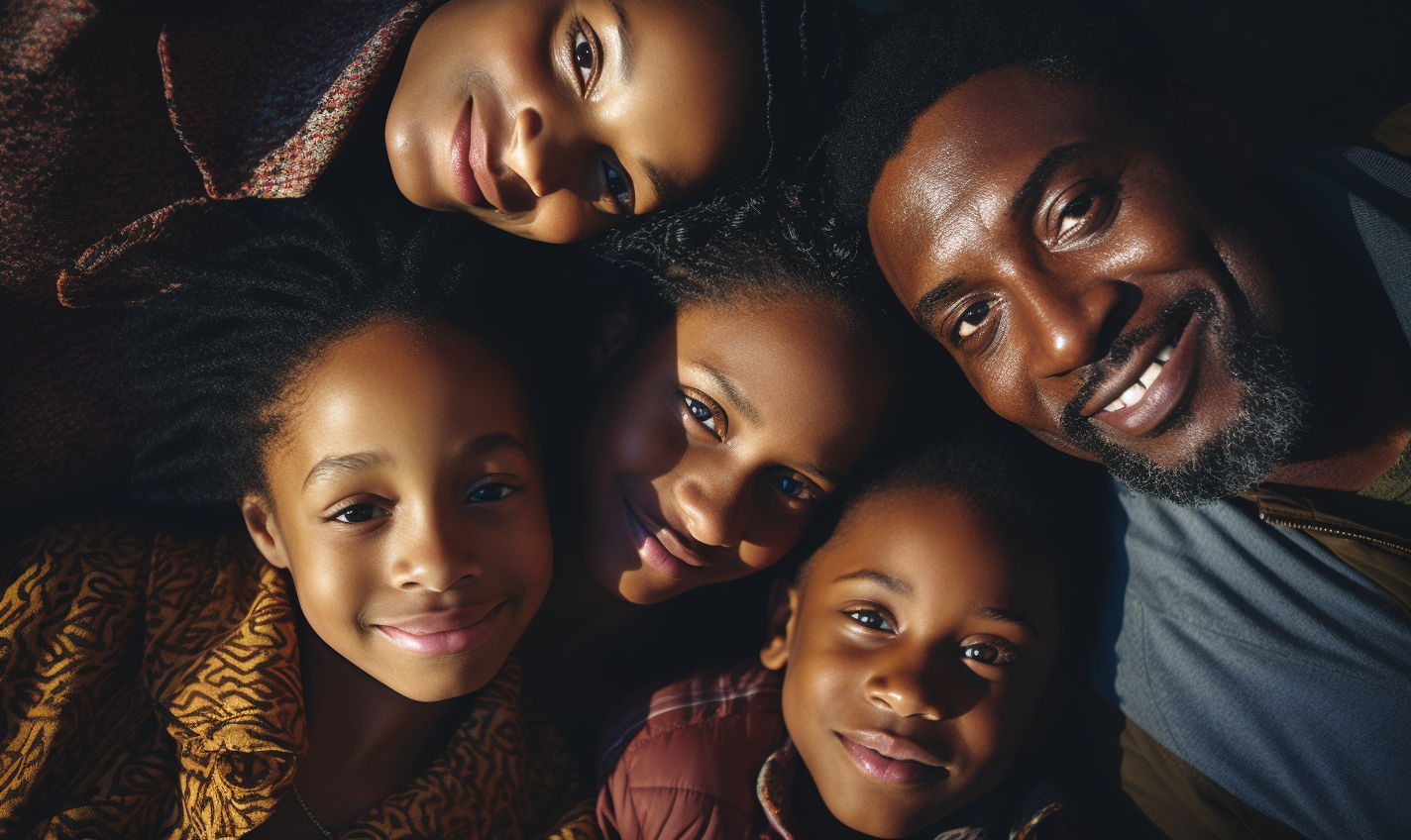
A few holistic health and wellness strategies to consider
At the Boris Lawrence Henson Foundation, we strive to help individuals find pathways to peace and well-being and to learn to choose joy over everything. While happiness and joy can be present at the same time, they are different emotions. Happiness is experienced because of external circumstances. Joy, however, is a deeper, longer-lasting emotion that results in feelings of inner peace and contentment. Most importantly, joy can be present even during unhappy times. Finding our joy often begins with intention and caring for our mental health.
Mental health includes our emotional, psychological, spiritual, and social well-being. Our mental health impacts how we think, what we feel, and how we act. It impacts how we handle daily stressors, engage in relationships, and make choices. While we may not talk as much about our mental health, it is just as important as our physical health, and the two are highly correlated. If we feel bad physically, we often feel bad mentally, and vice-versa. Our mental health is not static, nor is it a permanent state of being mentally healthy or unhealthy. Mental health is experienced on a continuum, impacted by a myriad of factors including biological factors (e.g., genetics, hormones), major life experiences (e.g., trauma, grief, loss), and daily life stressors (e.g., lack of sleep, nutritional imbalance, persistent stress).
Caring for our mental health as a pathway to finding our joy has many health benefits. Numerous research studies have found that joy can lead to lower heart rates, lower blood pressure and better functioning immune symptoms. Further, individuals who maintain joy are less likely to be impacted by chronic illness and are likely to live longer. If you are currently experiencing mental health problems, finding your joy can feel like a difficult process. But it is possible to experience joy, even in periods of distress and psychological pain. There are many pathways to finding your joy. One pathway is through professional mental health services. At the Boris Lawrence Henson Foundation, we are consummate advocates for mental health treatment and provide many opportunities to connect individuals with culturally competent mental health treatments and providers (Resouce Guide).
However, mental health treatment is not the only way to find joy. If you are at the beginning of your journey toward optimal mental health, and still contemplating whether therapy is right for you, or if you have determined therapy is not right for you at this time – there are still things you can do right now to enhance your mental health and to help you find joy.
Start by closing your eyes and visualizing yourself in your most joyous state. What are you doing? Can you find ways to intentionally integrate that thing more frequently into your life? If you are unsure about what brings you joy, try the following evidence-based holistic health and wellness strategies:

Lifestyle changes: Our mind, body, and soul are connected, and what we do and consume has a direct impact on how we think and feel. Take notice of your current lifestyle… are there changes you could make today that might impact your mental health and overall well-being? Having a well-balanced and nutritious diet is a great first step. It is important to eat foods high in nutritional value. You do not have to go on the latest diet trend to eat better. Start by adding more leafy green vegetables and fruits, taking your daily multivitamins, drinking 8-10 cups of water per day, and you will find you will start to feel better.
Being physically active is also important. Most doctors recommend at least 20 minutes of daily physical activity, and you can find creative ways to work this into your daily routine.
Get enough sleep each night (for most adults, 7-9 hours is ideal). Your brain and body cannot function properly without it. Being intentional about small lifestyle changes can have a huge impact on your mental health.
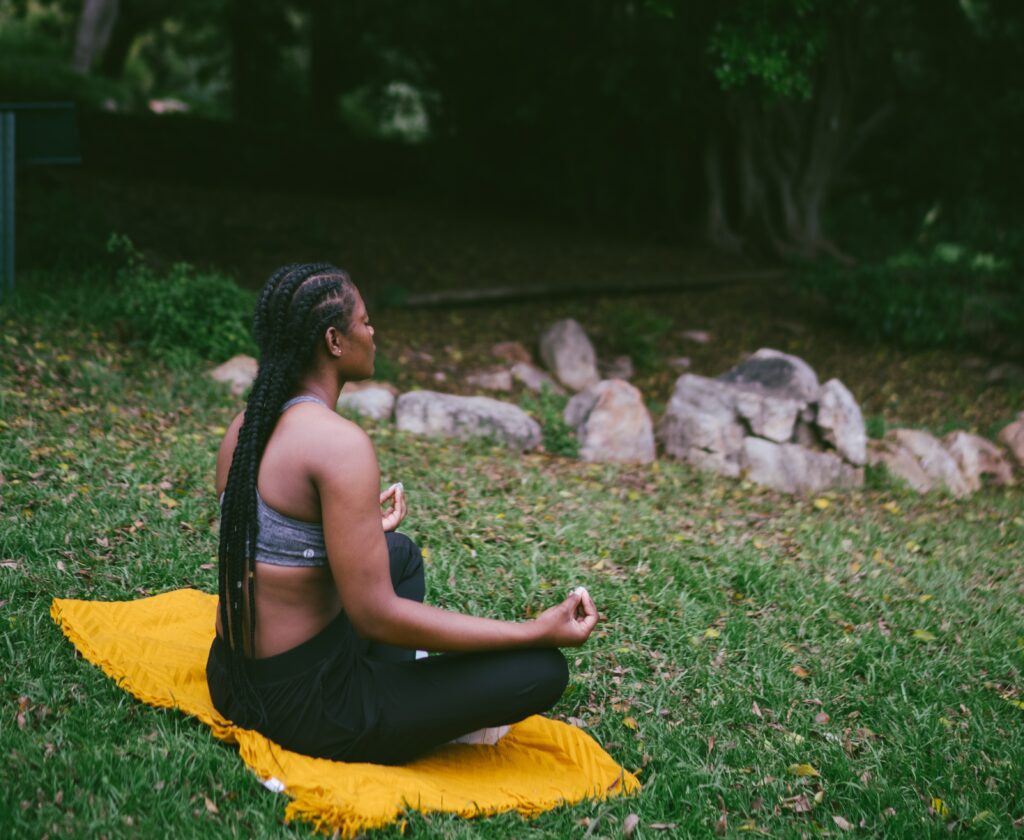
Meditation/Mindfulness: Meditation practice encompasses a wide variety of techniques to train our mind and body to be attentive, and aware, and achieve a mentally clear, emotionally calm, and stable state. Mediation has been shown to decrease stress, anxiety, depression, and pain. And can further enhance one’s sense of peace, self-concept, and joy. And it can be done on your own.
One strategy is through the process of mindfulness. Mindfulness is always available to us in each and every moment. This could involve taking time to stop and breathe when you get a text message or email instead of rushing to respond, or mindfully eating your lunch and enjoying every taste and sensation instead of scarfing it down. You may prefer guided meditation, which involves being assisted or guided by someone else. You can easily find excellent guided meditations in the form of audio and visual aids online. Guided meditation follows a script and may use visualization techniques or imagery to walk you through your meditative practice.
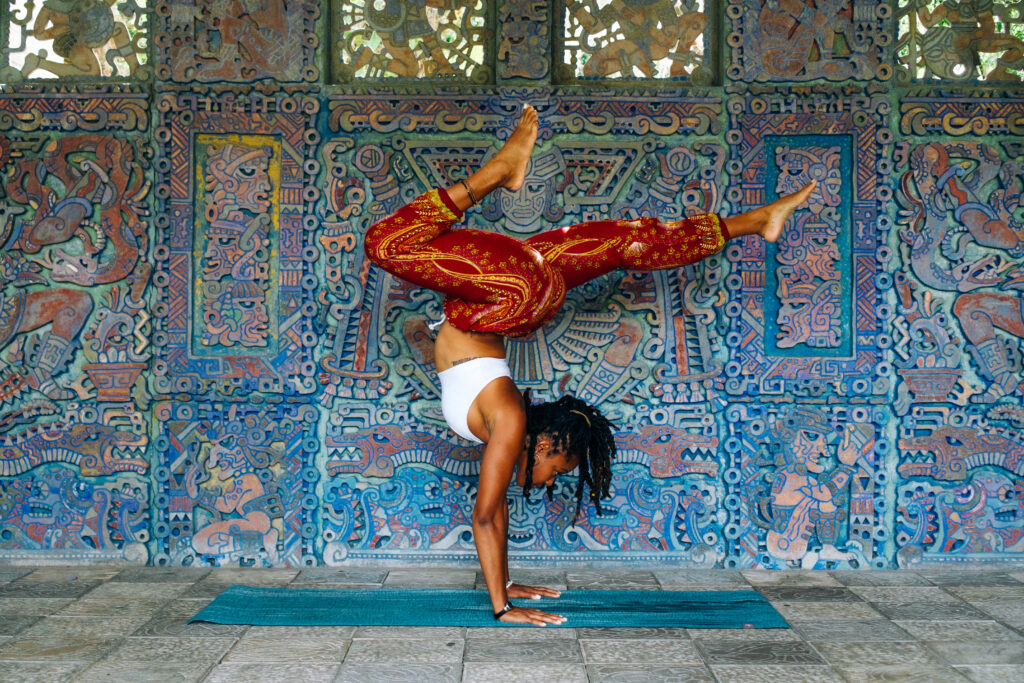
Yoga: Yoga is a mind-body practice that combines physical poses, controlled breathing, and meditation or relaxation. Yoga has been found to help reduce stress, lower blood pressure, and lower your heart rate. Although people new to yoga are often apprehensive about starting, anyone can do yoga. There are many forms of yoga. That means you are sure to find one that suits your needs, interests, and physical abilities. Hatha yoga is great for beginners and involves basic postures and focuses on breathing and relaxation. Vinyasa yoga is more active and connects movement to breathing, while Kundalini yoga is a more spiritual approach that encourages meditation. There is also chair yoga, for those with restricted movement. You can find a variety of yoga classes available in your communities conducted in person, but you can also find amazing classes online.
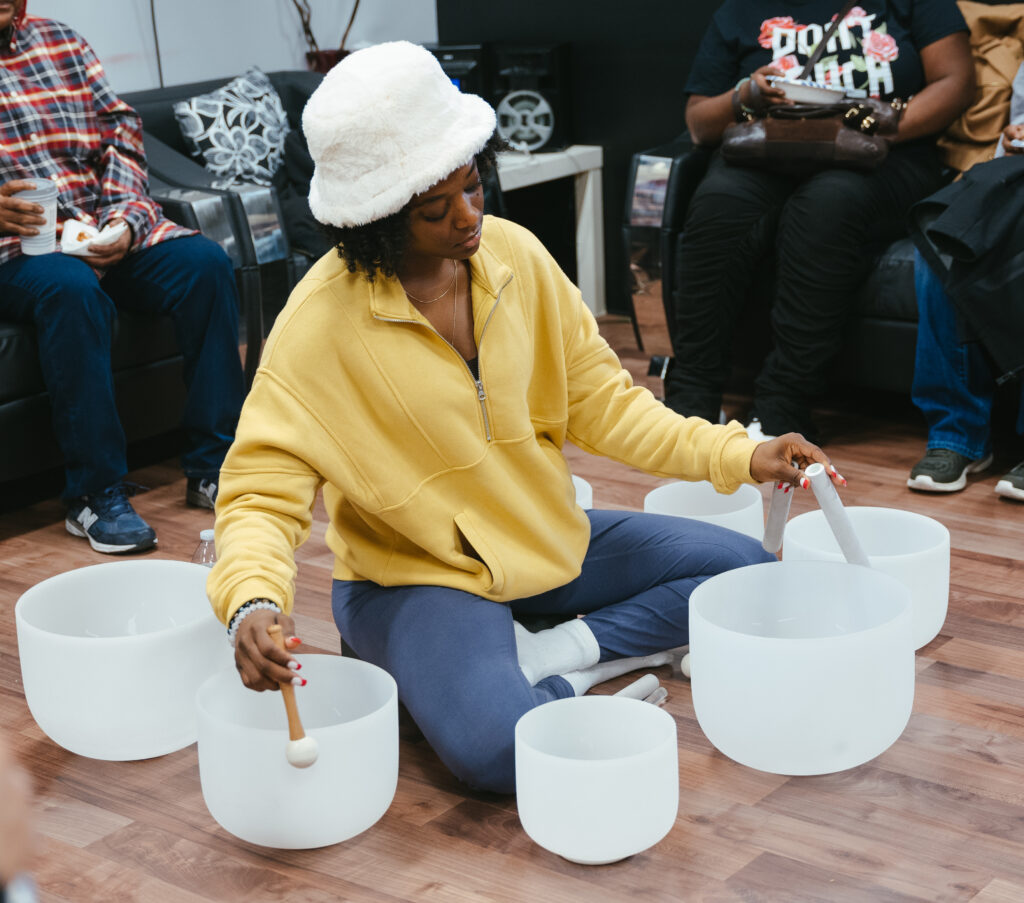
Cultural Arts: Cultural art is a broad term that encompasses a wide variety of forms founded within your unique culture. For African Americans, our ancestors often engaged in intentional strategies to decrease stress and enhance joy. This includes things like dancing, drumming, song, and music. These art forms are still a huge part of our culture today, but we may not always recognize their major medicinal benefits. Cultural art forms have been found to have significant therapeutic benefits. I wrote a scientific paper on the therapeutic aspects of West African Dance, for example, and found that individuals who engaged in these classes left feeling less stressed and anxious and feeling emotionally, spiritually, and culturally fulfilled. Take a moment to reflect on your ancestry and think about what traditional coping strategies your people would engage in and try to find a class available in your community or one you can take online.
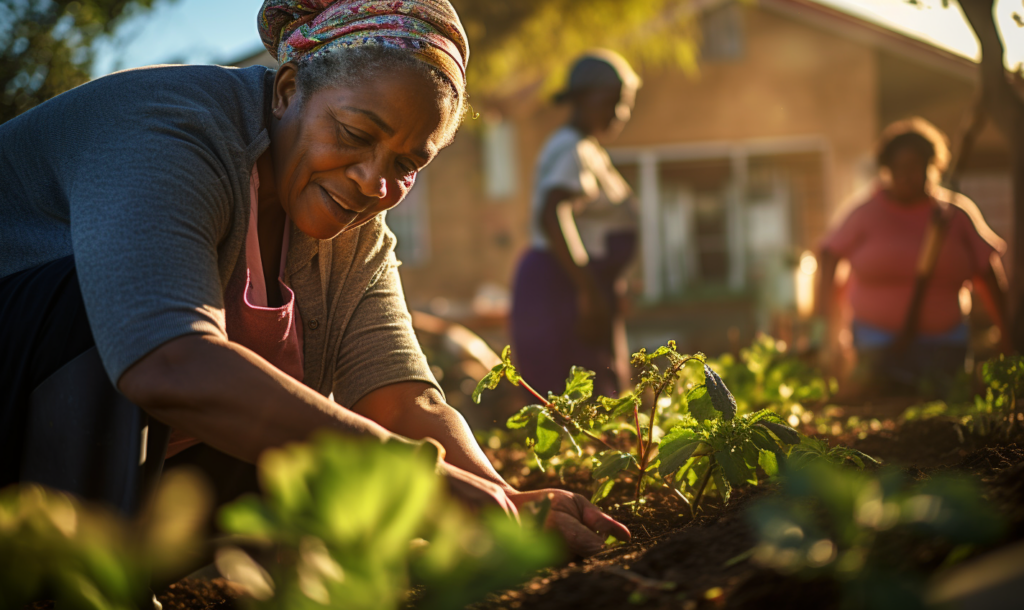
Gardening: Gardening can do more than provide you access to healthy foods. Gardening has been found to have a positive impact on our mood and brain chemistry. There are multiple reasons for this. Just being outdoors promotes joy! The vitamin D from the sun and the fresh air can go a long way towards improving your mood. Gardening can also be a mindfulness practice where you can practice breathing and use all your senses to gain calmness and clarity. What you may not realize, is that the soil itself can improve your mood. There is a bacteria found in soil that stimulates areas of the brain that help you feel good. You don’t have to have land or a backyard to garden, try growing some herbs on your windowsill or some tomatoes in a pot on your porch. You may be surprised how this strategy can immediately enhance your joy.
I hope this article has helped to expand the rainbow of options for how you can connect with health and healing. I encourage you to reach out to me if there are questions you’d like answered, or topics you would like explored, please let me know. I sincerely look forward to hearing from you.
Until next time, remember to choose joy over everything, and that your health is your most valuable asset.
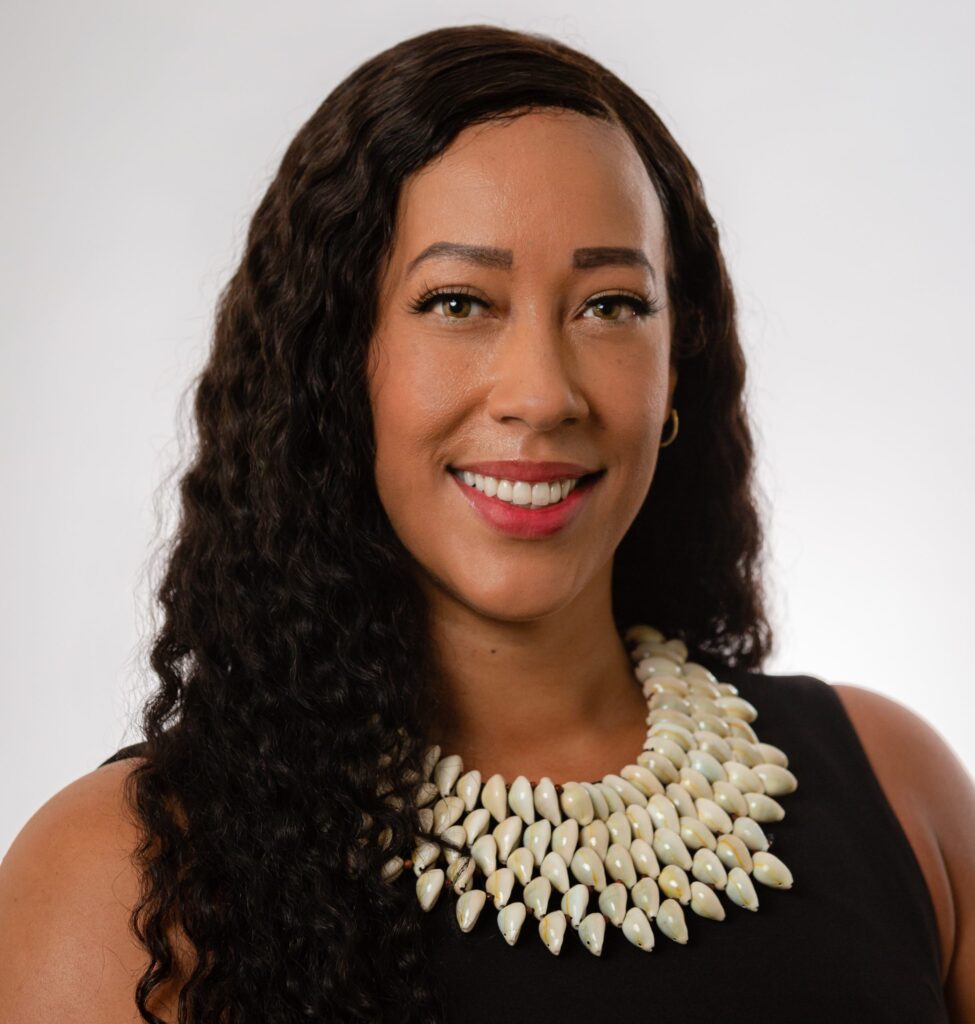
Kyaien Conner, PhD, LSW, MPH
Provider Training and Outreach Coordinator
Boris Lawrence. Henson Foundation

